2024 Cohort

Patrick Ryan
Patrick Ryan is an economist at USSA International where he focuses on global macro research and international investment strategy. Prior to USSA, Patrick worked in geopolitical strategy at Macro Advisory Partners. He began his career at the International Monetary Fund, first as a research analyst in the Fiscal Affairs Department and later as an external consultant for macro-fiscal and public finance issues. His research interests include economic development, global capital flows, and sovereign debt. He holds a Bachelor of Science in Quantitative Economics and Psychology from Saint Joseph’s University and a Master in Public Affairs from Princeton University’s School of Public and International Affairs.
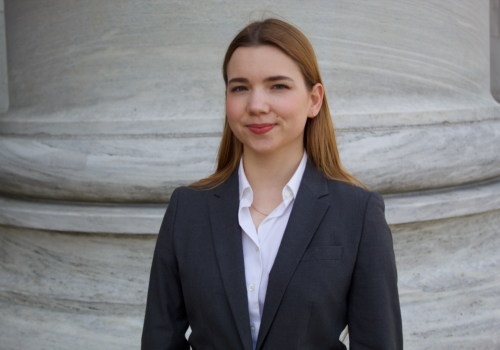
Lili Vessereau
Lili Vessereau is a Teaching Fellow at Harvard University and a Master in Public Policy student and Fulbright Scholar at the Harvard Kennedy School. Currently a Consultant for the World Bank’s Development Research Group and a Google Public Policy Fellow, she is also a Research Scholar at the Harvard Center for International Development, where she works on public good provision in Ghana and a Research Assistant at the Mossavar-Rahmani Center for Business and Government where she focuses on debt restructuring.
She previously worked for the French Government on public policy advisory and at the United Nations. She held positions at UNESCO, at the European Investment Bank and at the Center for Strategic and International Studies. She received the 2022 Prize of the French Central Bank for a paper on frictional unemployment. She is a former OSCE 2030 Fellow and the former Youth Delegate of France to the Council of Europe.
She holds Master’s Degrees from Sciences Po Paris (Public Affairs), La Sorbonne (Law), and HEC Paris (Finance). She is a Global Shaper of the World Economic Forum, where she founded an initiative for better social mobility for youth in France.
2023 Cohort

Greg Brownstein
Greg Brownstein is an independent research consultant and a committed advocate for more effective international financial institutions. Greg most recently served as the Deputy Director of the Bretton Woods Committee, an organization dedicated to improving economic and financial cooperation. At the Committee, Greg helped lead research and advocacy initiatives focused on Special Drawing Rights, sovereign debt relief and resolution mechanisms, World Bank funding, and more. From 2012 to 2017, Greg was a Program Officer at the National Democratic Institute, where he led global advocacy and research projects focused on good governance, transparency, and civic technology. Greg has also been a consulting researcher for organizations including the Atlantic Council, GiveDirectly, and the Inter-American Foundation. Greg holds a Master of Arts in international economics and development from the Johns Hopkins School of Advanced International Studies (SAIS) and a Bachelor of Arts in political science and classical civilization from Oberlin College. Today, much of Greg’s time is spent happily corralling his two young children, Caleb and Sadie.
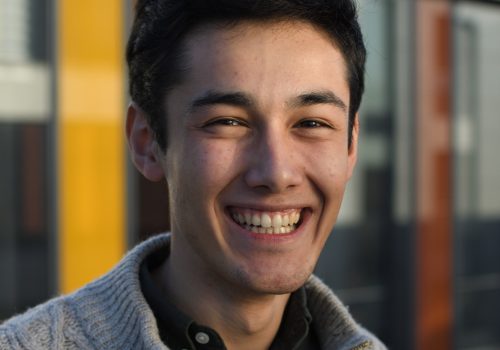
Joel Christoph
Joel Christoph is a Ph.D. researcher in Economics at the European University Institute (EUI) in Italy. As a co-organizer of the EUI’s Macroeconomics Working Group, an ambassador to the CIVICA European university alliance, and a Dahrendorf Fellow of Oxford University, Joel is deeply engaged in economic research and collaboration.
Having completed Master’s degrees in Economics at the Barcelona School of Economics and the EUI, as well as a Bachelor’s degree in Economics from University College London, Joel is eager to contribute as a Bretton Woods 2.0 Fellow of the Atlantic Council, focusing on rethinking the foundations of economic global governance.
Joel’s recent experience includes serving as a Consultant for the World Bank, where he modeled global financing of grid decarbonization. He has also co-founded and managed Endeema, a renewable energy software start-up based in Germany, and held research positions at the Centre for the Governance of A.I., Future of Humanity Institute, University of Oxford, and the Carnegie Endowment for International Peace.
In addition, Joel has taken on various policy and academic leadership roles, such as being a World Economic Forum Global Shaper, and a Ph.D. Researchers’ Representative, and actively participating in the ICANN NextGen program, the Young Scholars Initiative of the Institute for New Economic Thinking, and the Internet Society.
With a multicultural background and experience living in seven countries across three continents, Joel is well-prepared to engage with experts from diverse backgrounds as a Bretton Woods 2.0 Fellow. He is committed to identifying emerging challenges and developing innovative solutions to reshape the architecture of global economic governance.
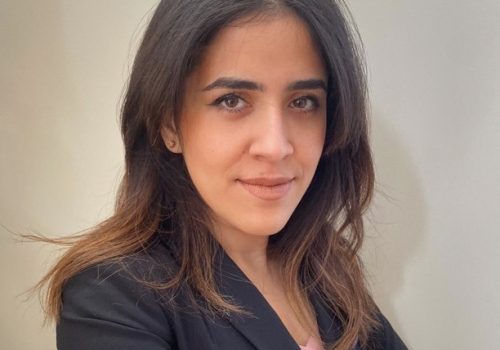
Shirin Hakim
Shirin Hakim is an Iranian-American scholar of environmental policy and sustainable development, with expertise on Iran and the greater Middle East and North Africa (MENA) region. Hakim is a rising voice and frequent commentator of Iranian geopolitics, climate change, and the nexus between environmental and security issues, with a focus on economic sanctions and their environmental implications.
Born on the Caribbean Island of Saint Lucia to Iranian parents from Ahwaz who immigrated to India to pursue their educations in the wake of the Iran-Iraq war, Hakim grew up primarily in the United States and initially pursued studies her undergraduate the field of Public Health. Before embarking on her PhD in Environmental Policy at Imperial College London’s Centre for Environmental Policy, Hakim formerly fulfilled research posts at Harvard Medical School on HIV/AIDs in Islamic majority contexts, and Cornell Medical Center on radiation oncology, and Iran’s Ministry of Health and Tehran University of Medical Sciences on Disaster Risk Management (DRM) and water management in Iran.
Hakim completed her PhD in Environmental Policy at the Centre for Environmental Policy at Imperial College London where she was an affiliate at the Grantham Institute’s Sciences and Solutions for a Changing Planet (SSCP). Her dissertation focused on the impact of economic sanctions on sustainable development in Iran where she was one of the first scholars in the world to examine the impact of economic sanctions on sustainable development, the environment, and international climate goals. Hakim engages on contemporary policy issues as a frequent speaker and contributor to prominent news and policy outlets such as Al Jazeera and The Guardian on the intersection between environmental issues and socioeconomic realities in Iran and the greater MENA region.
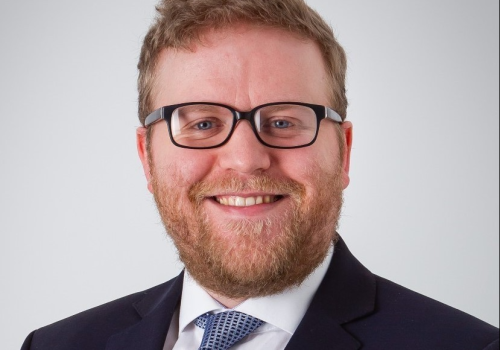
James Gardiner
James is currently an Economist at EY in the United Kingdom with a focus on macroeconomics, international trade, and strategy. He has worked on over 70+ different international trade, development and strategy projects with both the private and public sector. Before joining EY, James worked in the Foreign and Commonwealth Office (now FCDO) at Wilton Park as part of their policy unit. James was selected as a Franco-British Leader in 2019 by the Franco-British Council and curated the Belfast Hub of the World Economic Forum Global Shapers in 2018. James has a Master’s Degree degree in Philosophy, Politics and Economics from the University of York and 1st class honours degree in International Relations from the University of Ulster.
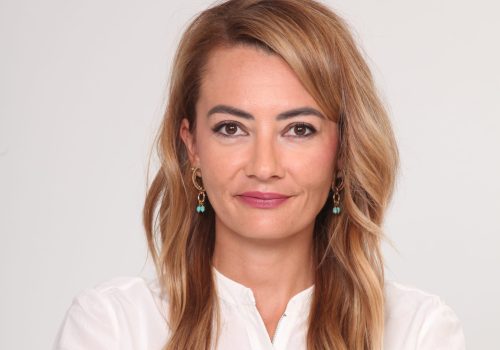
Sona Muzikarova
Sona Muzikarova is a political economist, author and policy consultant, with over a decade of experience delivering forward-looking insights on the region of Central and Eastern Europe. Before joining the Atlantic Council GeoEconomics Center’s Bretton Woods 2.0 project as a fellow, she held several senior advisory roles, including to the Foreign Affairs Secretary of State (2020-2023) and the National Bank of Slovakia’s governor (2020-2021).
As chief economist at Bratislava-based think-tank Globsec, she founded an influential research and policy advocacy program focused on enhancing economic policies in the region (2020-2022). Sona also made significant contributions as the chief advisor to the Slovak Presidency to the OECD and as a macroeconomist focused on the EU’s non-euro countries at the European Central Bank.
Her expert commentary has been featured by the Financial Times, Politico, Project Syndicate, BBC, and Bloomberg, among others. In 2023, Muzikarova was awarded Eastern Europe Eisenhower Fellowship.
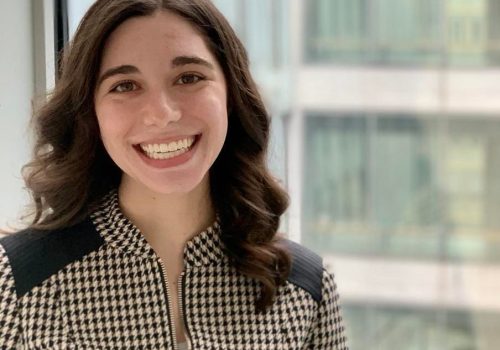
Sienna Nordquist
Sienna Nordquist is a PhD student in Social and Political Science at Bocconi University (Milan, Italy). She was previously a MSc Candidate at the London School of Economics and a Robert W. Woodruff Scholar at Emory University. Sienna’s research interests include public opinion, foreign policy, clientelism, targeted foreign aid and the Marshall Plan, and European politics. Sienna has previously served as Senior Advisor to the Americas Region with UN SDSN Youth and as a Champion for Change with UN Women.
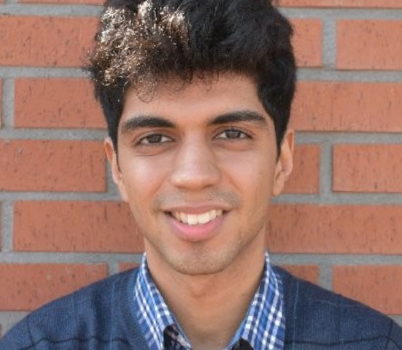
Utsav Saksena
Utsav Saksena is currently a Research Fellow (Macro-Finance) at the National Insitute of Public Finance (NIPFP), an autonomous institute under the Ministry of Finance, Government of India. At NIPFP, he is part of the NIPFP-DEA group, which works closely with the Department of Economic Affairs (DEA) at the Indian Ministry of Finance. He has worked on a number of topics related to macro-economic monitoring and policy; namely fiscal & monetary policy, banking & financial markets, and digital currencies (cryptocurrencies & CBDCs). He also maintains a keen interest in international affairs, especially with respect to multilateral institutions and economic statecraft.
Utsav has previously worked at the Reserve Bank of India, the Indian Council for Research on International Relations (or ICRIER, a think-tank in Delhi), and the Impact Institute (a sustainability consultancy in Amsterdam). He has a master’s degree in Economics from Tilburg University, Netherlands, a bachelor’s degree in Economics from St. Stephen’s College, Delhi University, and a post-graduate diploma in Coporate Law and Management from the Indian Law Institute. He is also a host for the Economics channel of the New Books Network, an international author-interview podcast consortium.

At the intersection of economics, finance, and foreign policy, the GeoEconomics Center is a translation hub with the goal of helping shape a better global economic future.